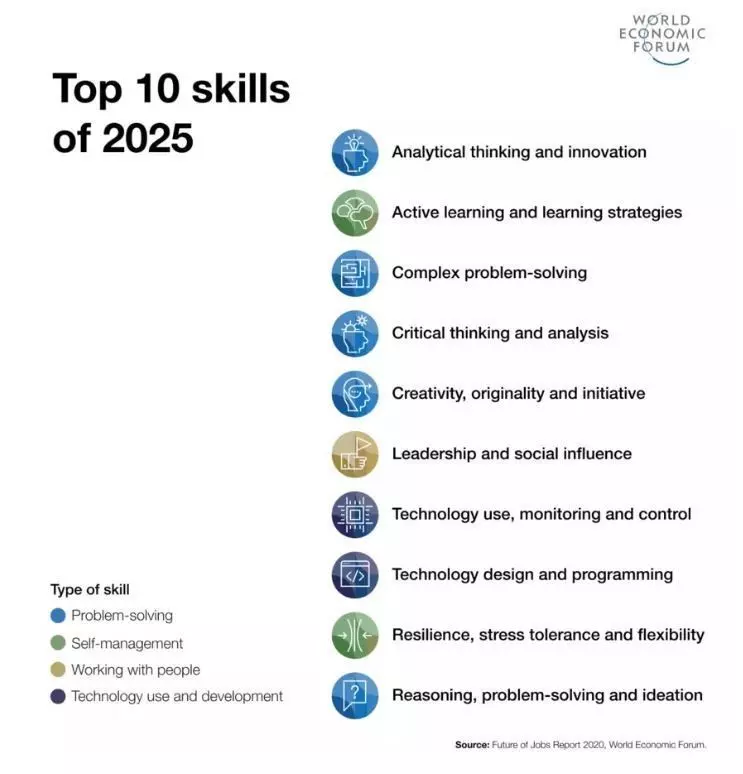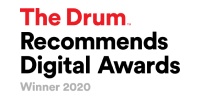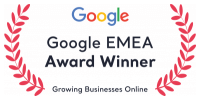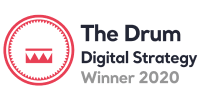I’m one of those people who loved going back to school in the autumn. It wasn’t that I didn’t enjoy the summer holidays – it was simply the thrill of discovery I felt in the classroom when presented with new information, different stories about the world and challenging facts.
I feel fortunate that my love of learning has persisted into adulthood and is one that I’m able to pursue thanks to an employer who realises that investing in their people’s development is the best way to be effective, resilient and deliver value to our clients.
But this desire to continue learning has taken on a new urgency.
The World Economic Forum’s Future of Jobs report found that 50% of all employees will need reskilling by 2025 – that’s just over three years now! Society and businesses are changing around us, driven by technological advances like A.I., machine learning and automation; shifts in consumer behaviour; the impact of geopolitical forces; and climate change. And the skills that we need to thrive in the coming years aren’t necessarily the ones we learned at school.
Here are the top 10 skills we’ll need according to the WEF:

Once we leave university and get caught up in the busy-ness of our working lives, it can be easy to step back from periods of focused learning. There will be things that we pick up on the job, reading posts and articles shared by our colleagues or attending industry events. But I believe that’s no longer enough.
It’s time to incorporate periods of focused learning into our work lives in order to stay relevant and gain a competitive advantage.
Here are 5 things I love about continuous learning:
It keeps you humble
There’s nothing like learning a new skill or engaging with a new topic to make you realise what you don’t know. I recently completed Mark Ritson’s Mini MBA and was amazed by how much I didn’t know about marketing – and I’m ten years into my marketing career! Approaching things with a beginner’s mind and being willing to feel incompetent – and push through regardless – is how we grow and get better. There is always more to learn, and it requires a bit of humility to engage in lifelong education.
It increases your worth
When I say worth, I mean it in two senses of the word. The first is literally adding financial value to yourself as a professional. Learning a new skill, expanding your knowledge base, developing expertise – all of these things can help you when it’s time to ask for a pay rise or go for a new job.
But the second way it increases your worth is personal – giving you a measure of satisfaction, confidence and credibility. It can help you be bold, take risks and speak up in ways you might not have before. And that can open incredible opportunities for you.
It keeps you interested and interesting
Exploring new topics and learning a new skill or technology can give you a new way to engage with the world around you. It can stop you from falling into routines or habits that lead to a narrow point of view. You’ll be able to see new connections between seemingly unrelated topics or events and that can lead to new insights or breakthrough solutions.
And the curiosity you bring to a new venture and the questions that learning can spark can spill over from professional to personal life, enriching your relationships.
It introduces you to new people
Whether you’re learning in person or online, it’s worth the extra effort to interact with your peers and the teacher. Sharing your perspectives and opinions, engaging in conversations that push the boundaries of your knowledge, creating a sense of community – these are all immediate benefits.
But there are long-term benefits of investing in a new network too. Those relationships can play a defining role in your future when it comes time to switch jobs, start a side hustle or create something new. Human connection and a spirit of generosity can take you quite far in your professional life.
It helps you future-proof
As mentioned earlier, the jobs of the future will be hybrid, requiring both human skills and technical skills. In her book Long Life Learning, Michelle Weise quotes human resources expert Josh Bersin, who says these hybrid jobs ‘do not lend themselves to static job descriptions and simple job titles. They are jobs that require technical, industry, managerial and integrated thinking skills; they often require skills in communication, persuasion and teamwork’.
Investing in these skills will be essential in finding meaningful work in the coming years.
Final thoughts
You can tell I’m a huge advocate for continuing professional development, but I would also say don’t just invest your time and effort in work-related training. Follow your curiosity – read a book or listen to a podcast about a subject you’ve never been interested in before. Take up a hobby that gets you out of your head and into your body. Start a conversation with someone you normally wouldn’t interact with.
It’s only by exposing ourselves to new ideas, different perspectives and other people’s experiences that we can best prepare for the future and live interesting lives.
If you have any questions or want to continue the conversation, get in touch with us.









